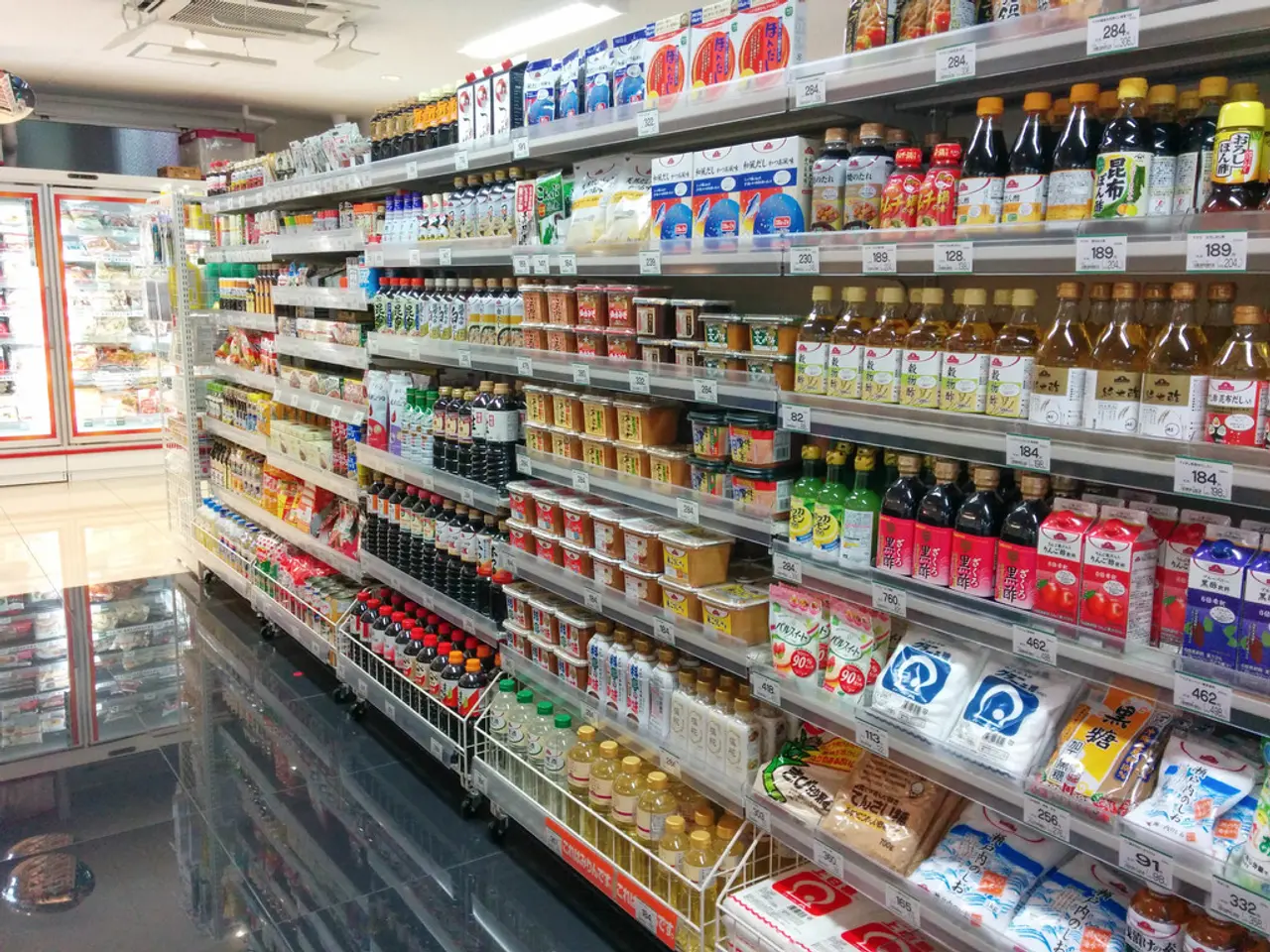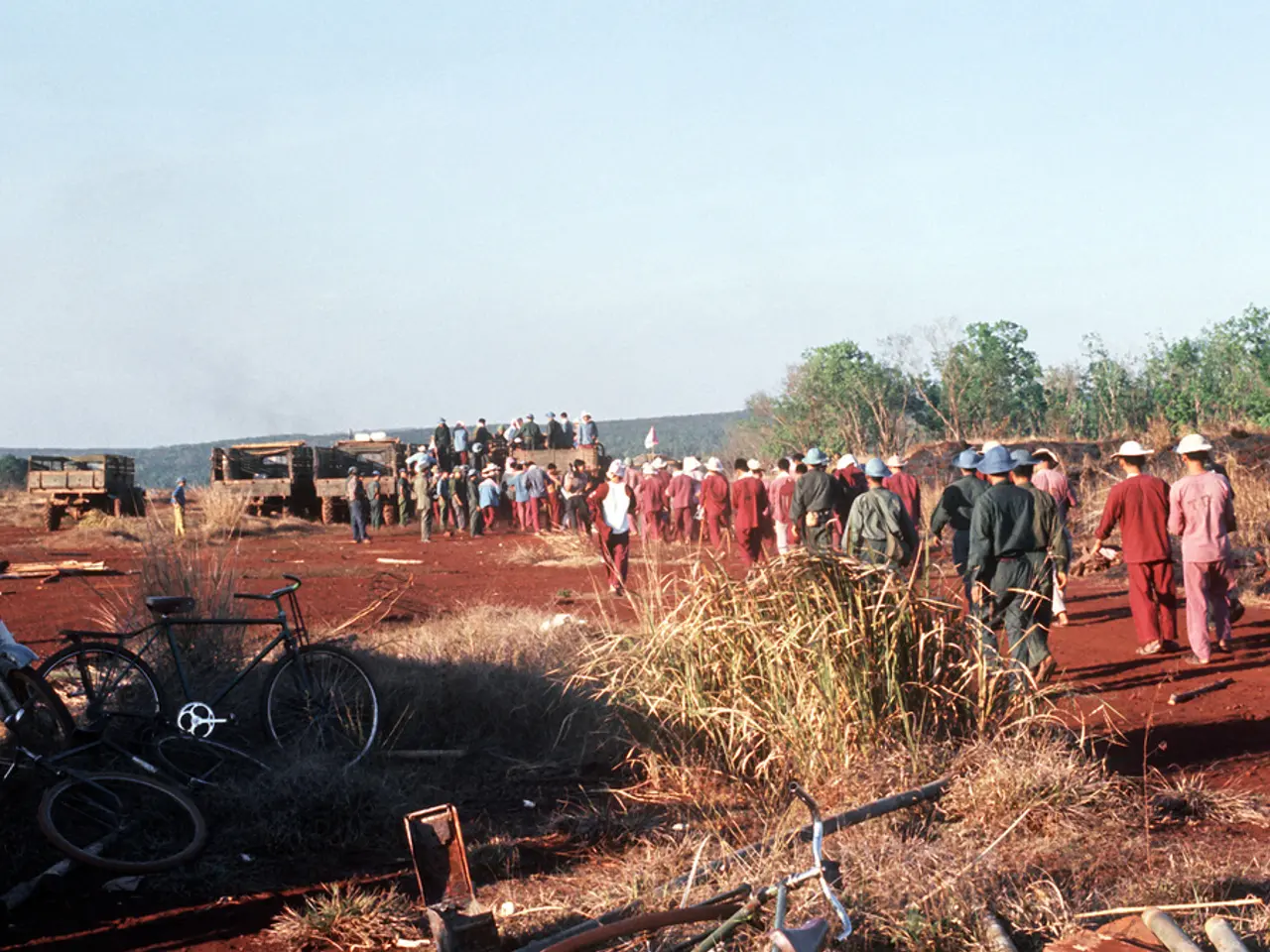Uncertainties surface for the trucking sector as Trump's tariff suspension concludes
The changing trade policies in 2025, particularly tariffs on Chinese goods, have significantly impacted the trucking industry serving Southern California ports during their peak season. The Ports of Los Angeles and Long Beach, two of the country's busiest, have experienced reduced import volumes, increased supply chain challenges, and pressured trucking operations.
Imports through the Port of Los Angeles dropped 9% year-over-year in May 2025 due to steep tariffs on Chinese goods, hitting the lowest monthly volume in over two years. This reduced cargo volume translated to less freight for trucking companies at the ports. The anticipated end of tariff pauses in July 2025 has increased uncertainty, with trucking firms worried about long-term impacts on business. Despite a slight uptick in container volumes ahead of tariff deadlines, trucking companies report a freight recession with business down for over two years, reflecting broader market declines.
Trade associations including the California Chamber of Commerce warn that 2025 tariff changes may recreate pandemic-era challenges such as severe port congestion, inaccessible vessel capacity, container shortages, and shipment delays. These issues would strain trucking logistics during peak season at ports like Los Angeles and Long Beach, the two busiest U.S. ports accounting for 31% of ocean trade.
To alleviate congestion, port authorities are proceeding with infrastructure enhancements. However, truckers face ongoing uncertainty and potentially less freight movement due to tariff-related disruptions and economic recessions in freight markets. Stakeholders urge federal coordination to proactively address anticipated congestion and supply chain disruptions to stabilize trucking industry operations in this critical gateway region.
Robert Loya, President of the California Trucking Association, stated that no one is buying, suggesting a lack of demand. Many truck drivers have left the industry due to uncertainty about when tariffs would be resolved and if freight would return. Matt Schrap, the CEO of Harbor Trucking Association, mentioned that trucking companies need clarity on trade policy going forward to avoid more companies going out of business.
Schrap also stated that trucking companies are cautiously optimistic that the current surge will last through September. However, the longevity of the current surge in business for trucking companies depends on what happens after the 90-day pause on tariffs. Without increased volumes, more trucking companies could go out of business, as mentioned by Schrap.
In order to ideally invest back into their companies, trucking companies need certainty on trade policy, according to Schrap. Ernie Tedeschi, Director of Economics at Budget Lab at Yale, states that companies investing less in their workforce lowers productivity in the long run, which could lead to decreased wages.
Cargo ships from overseas are usually packed with back-to-school supplies and holiday gifts during peak season. However, the current trade tensions are taking a toll on the trucking industry. President Donald Trump's 90-day pause on tariffs could end early this month, adding to the uncertainty faced by the industry.
Sources: [1] https://www.freightwaves.com/news/port-of-los-angeles-container-volumes-drop-9-year-over-year-in-may [2] https://www.joc.com/port-news/us-ports/west-coast-ports/california-chamber-warns-of-potential-port-congestion-and-supply-chain-disruptions-due-to-2025-tariff-changes_20250525.html [3] https://www.freightwaves.com/news/california-trucking-association-says-trade-uncertainty-is-stifling-business [4] https://www.joc.com/port-news/us-ports/west-coast-ports/port-of-los-angeles-long-beach-to-proceed-with-infrastructure-enhancements-despite-tariff-uncertainty_20250521.html
- The ongoing tariffs on Chinese goods have not only affected the import volumes at the Port of Los Angeles but also the trucking industry, causing a freight recession that has persisted for over two years.
- The California Trucking Association warns that a possible end to the tariff pause could lead to supply chain disruptions, similar to the challenges faced during the pandemic, including port congestion and shipment delays, which could strain trucking logistics during peak season.





